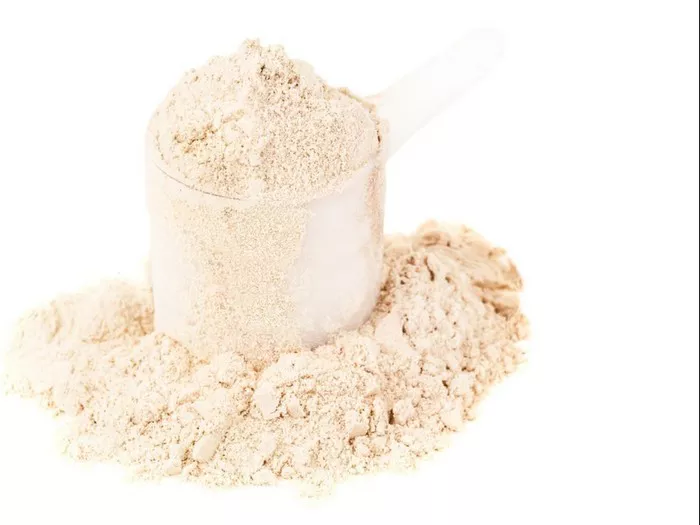Whey protein has long been heralded as a staple supplement for athletes, fitness enthusiasts, and anyone looking to boost their protein intake and support muscle growth and recovery. With a plethora of options available on the market, choosing the right whey protein can be overwhelming, especially for beginners. In this comprehensive guide, we’ll explore the various types of whey protein, key factors to consider when selecting a whey protein supplement, and recommendations for the best whey protein for beginners to kickstart their fitness journey.
Understanding Whey Protein
Whey protein is a high-quality protein derived from milk during the cheese-making process. It contains a complete amino acid profile, including essential amino acids that the body cannot produce on its own and must obtain from dietary sources. Whey protein is highly digestible and quickly absorbed by the body, making it an ideal choice for post-workout recovery and muscle building.
There are three main types of whey protein:
Whey Protein Concentrate (WPC): Whey protein concentrate is the most common form of whey protein and undergoes minimal processing. It contains varying amounts of protein (typically around 70-80% protein by weight) along with some lactose, fat, and other nutrients naturally found in milk. WPC is often more affordable than other forms of whey protein and retains more of the beneficial nutrients found in milk.
Whey Protein Isolate (WPI): Whey protein isolate undergoes additional processing to remove most of the lactose, fat, and carbohydrates, resulting in a product that is higher in protein content (typically around 90-95% protein by weight) and lower in lactose and fat. WPI is ideal for individuals who are lactose intolerant or looking to minimize their calorie and carbohydrate intake while maximizing protein content.
Whey Protein Hydrolysate (WPH): Whey protein hydrolysate undergoes further processing to predigest the protein, breaking it down into smaller peptides and amino acids. This makes WPH easier to digest and absorb, making it an ideal choice for individuals with digestive issues or those seeking rapid absorption post-workout. However, whey protein hydrolysate tends to be more expensive than other forms of whey protein.
Factors to Consider When Choosing Whey Protein
When selecting a whey protein supplement, beginners should consider the following factors to ensure they choose a product that meets their needs and preferences:
Protein Content: Look for whey protein supplements with a high protein content per serving, ideally around 20-25 grams or more. This ensures that you’re getting an adequate amount of protein to support muscle growth, recovery, and overall health.
Ingredient Quality: Check the ingredient list to ensure that the whey protein supplement contains high-quality, natural ingredients with minimal additives, fillers, or artificial sweeteners. Look for products that use grass-fed whey protein and are free from artificial colors, flavors, and sweeteners.
Flavor and Taste: Choose a whey protein supplement with flavors that you enjoy and find palatable. Common flavor options include chocolate, vanilla, strawberry, and cookies and cream, among others. Some brands also offer unflavored or unsweetened options for those who prefer a more neutral taste.
Mixability: Consider the mixability of the whey protein powder and how easily it blends into liquids such as water, milk, or smoothies. Look for whey protein supplements that mix well without clumping or leaving a gritty texture.
Allergen Information: If you have food allergies or sensitivities, be sure to check the allergen information on the product label to ensure that the whey protein supplement is safe for you to consume. Some whey protein supplements may contain allergens such as soy, gluten, or nuts.
Brand Reputation and Reviews: Research the brand reputation and read customer reviews to gauge the quality and effectiveness of the whey protein supplement. Look for brands that are well-known and trusted in the fitness and nutrition industry and have positive feedback from customers.
Best Whey Protein Options for Beginners
Based on the factors outlined above, here are some recommendations for the best whey protein options for beginners:
Optimum Nutrition Gold Standard 100% Whey: This popular whey protein powder is known for its high-quality ingredients, great taste, and mixability. It comes in a variety of flavors and contains 24 grams of protein per serving, making it an excellent choice for beginners.
Dymatize ISO100 Whey Protein Isolate: Dymatize ISO100 is a high-quality whey protein isolate that is low in lactose, fat, and carbohydrates. It provides 25 grams of protein per serving and comes in a range of delicious flavors, making it ideal for individuals looking to maximize protein content while minimizing calories and carbs.
MuscleTech Nitro-Tech Whey Protein Powder: MuscleTech Nitro-Tech is a scientifically formulated whey protein powder designed to support muscle growth and recovery. It contains 30 grams of protein per serving, along with added amino acids and creatine for enhanced performance and results.
JYM Supplement Science Pro JYM Protein Powder: Pro JYM is a blend of whey protein isolate, whey protein concentrate, micellar casein, and egg white protein, providing a sustained release of amino acids for optimal muscle growth and recovery. It contains 24 grams of protein per serving and comes in a variety of delicious flavors.
NOW Sports Whey Protein Isolate: NOW Sports Whey Protein Isolate is a high-quality, unflavored whey protein powder that is perfect for beginners who prefer a neutral taste. It contains 25 grams of protein per serving and is free from artificial additives, making it a versatile option for mixing into smoothies, recipes, or other beverages.
Conclusion
In conclusion, whey protein supplements can be a valuable addition to a beginner’s fitness regimen, providing a convenient and effective way to increase protein intake and support muscle growth and recovery. When choosing a whey protein supplement, beginners should consider factors such as protein content, ingredient quality, flavor and taste, mixability, allergen information, and brand reputation. By selecting a high-quality whey protein powder that meets their needs and preferences, beginners can maximize their results and achieve their fitness goals more effectively.
[inline_related_posts title=”You Might Be Interested In” title_align=”left” style=”list” number=”6″ align=”none” ids=”7054,6989,6986″ by=”categories” orderby=”rand” order=”DESC” hide_thumb=”no” thumb_right=”no” views=”no” date=”yes” grid_columns=”2″ post_type=”” tax=””]

































